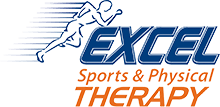Can a pinched nerve cause headaches? Pinched nerves can cause muscle spasms, headaches and other symptoms in the neck. The headaches they cause are known as cervicogenic headaches. A pinched nerve may resolve itself naturally. In some instances, however, they can be debilitating. It may interest you to learn more about pinched nerves in your neck, their potential symptoms and what can be done about them.
Symptoms of a pinched neck nerve and the recurring headaches they can cause
A pinched nerve in the neck can cause many symptoms besides recurring headaches. A few of the other symptoms you may experience include:
- Neck pain — During headaches or in the hours before a headache, the neck may be stiff or sore. Your pain may get worse when you turn your head in certain directions.
- Vomiting and nausea — Cervicogenic headaches can have many of the same symptoms as migraines. They may even be mistaken for migraines. This is especially true when the pinched neck nerve is triggering recurring headaches. Vomiting and nausea are two examples of symptoms of both types of headaches.
- Blurred vision — A cervicogenic headache may also result in vision issues. One of the most common is blurred vision. People with these types of headaches may also have trouble focusing their eyes or be sensitive to light.
- Numbness, tingling or pain in the arms — The nerves that run up and down both arms start in the neck. If you’re experiencing shoulder, elbow, forearm, or wrist numbness or tingling, you might have a pinched neck nerve. Pain can also radiate into these areas from the pinched nerve.
How can a physical therapist help my headaches?
The benefits of physical therapy for those with a pinched neck nerve that’s causing recurring headaches can include:
- Reducing the intensity, occurrence and length of headaches.
- Reducing the use of medications.
- Enhancing neck flexibility and function.
- Releasing the pinched neck nerve.
There are many techniques your physical therapist can use to help provide you with such benefits. Some of these techniques are:
- Joint mobilization — A commonly used form of manual therapy is joint mobilization. Cervical traction is an effective joint mobilization technique for treating a pinched nerve in the neck. Physical therapists use this treatment method to reduce spinal pressure by separating the vertebrae from each other. The technique can also facilitate blood flow.
- Soft tissue mobilization — A form of manual therapy, soft tissue mobilization is used by physical therapists for manipulating tissue with their hands. They can reduce the stiffness of neck muscles with soft tissue mobilization in your neck. Mobilizing these muscles can help reduce pressure on a pinched nerve. Soft tissue mobilization can improve circulation in your neck, too.
Find a physical therapy specialist who can help reduce recurring headaches
Can a pinched neck nerve cause recurring headaches? You bet. Are you living with this combination of issues? One of our expert physical therapists at Excel Sports & Physical Therapy would like to connect with you. If you suffer from continual headaches, we can provide a free screening to identify their cause. In addition, our therapists can develop an individualized plan of physical therapy treatment that is intended to address your particular needs. Your plan will also seek to decrease your pain and prevent it from recurring.
Get in touch with our team if you’re dealing with a pinched nerve that is causing you headaches.






